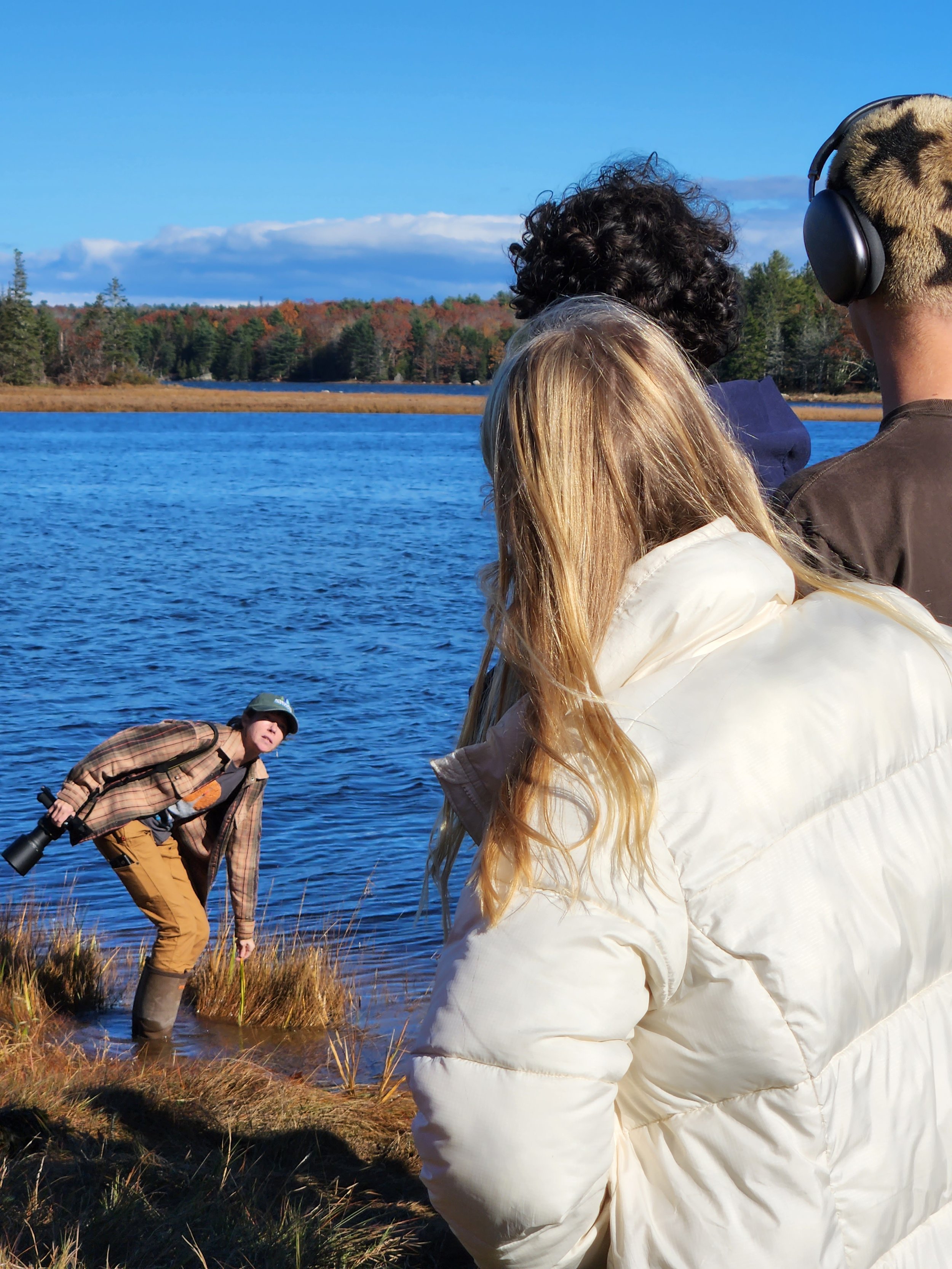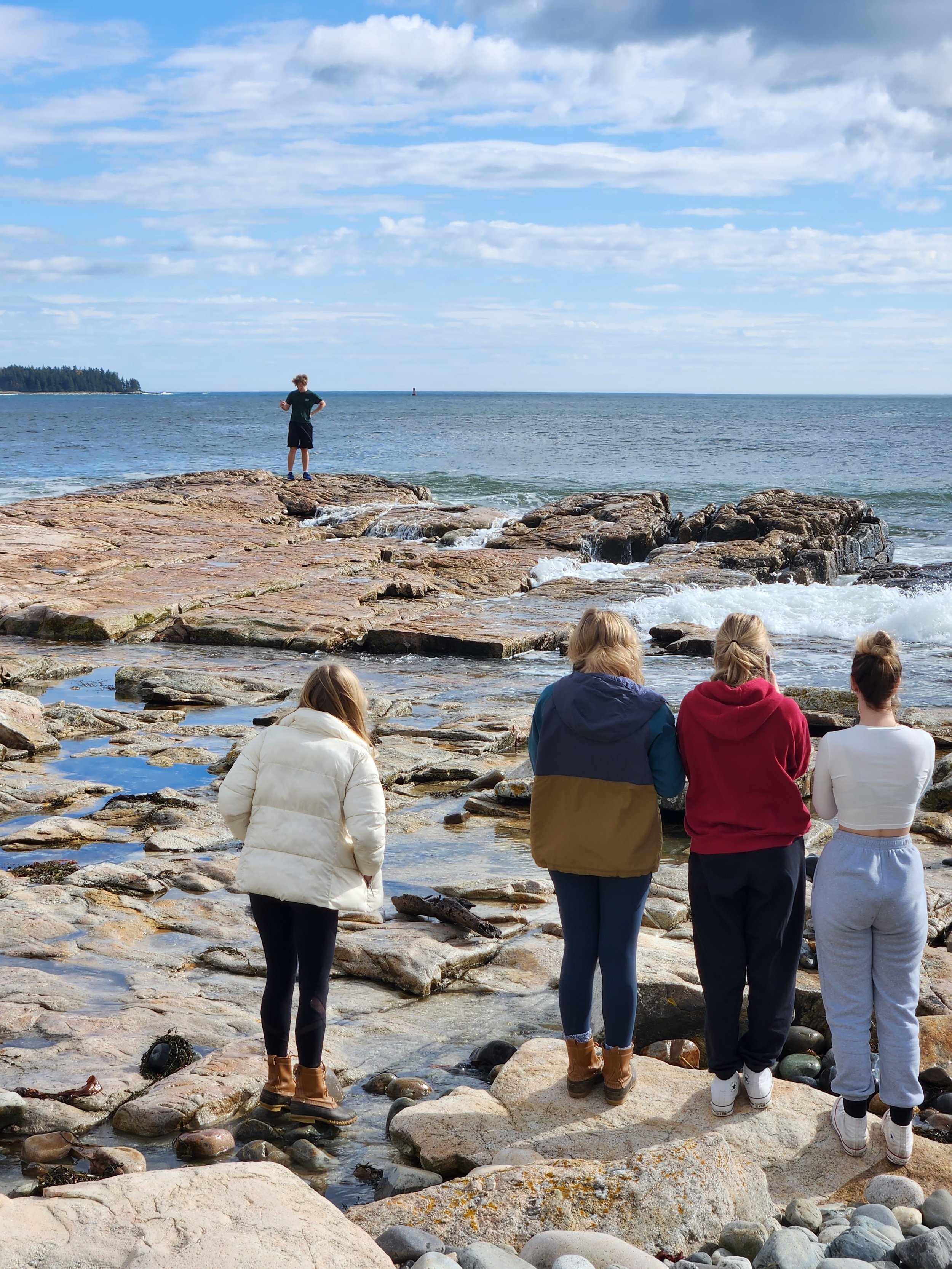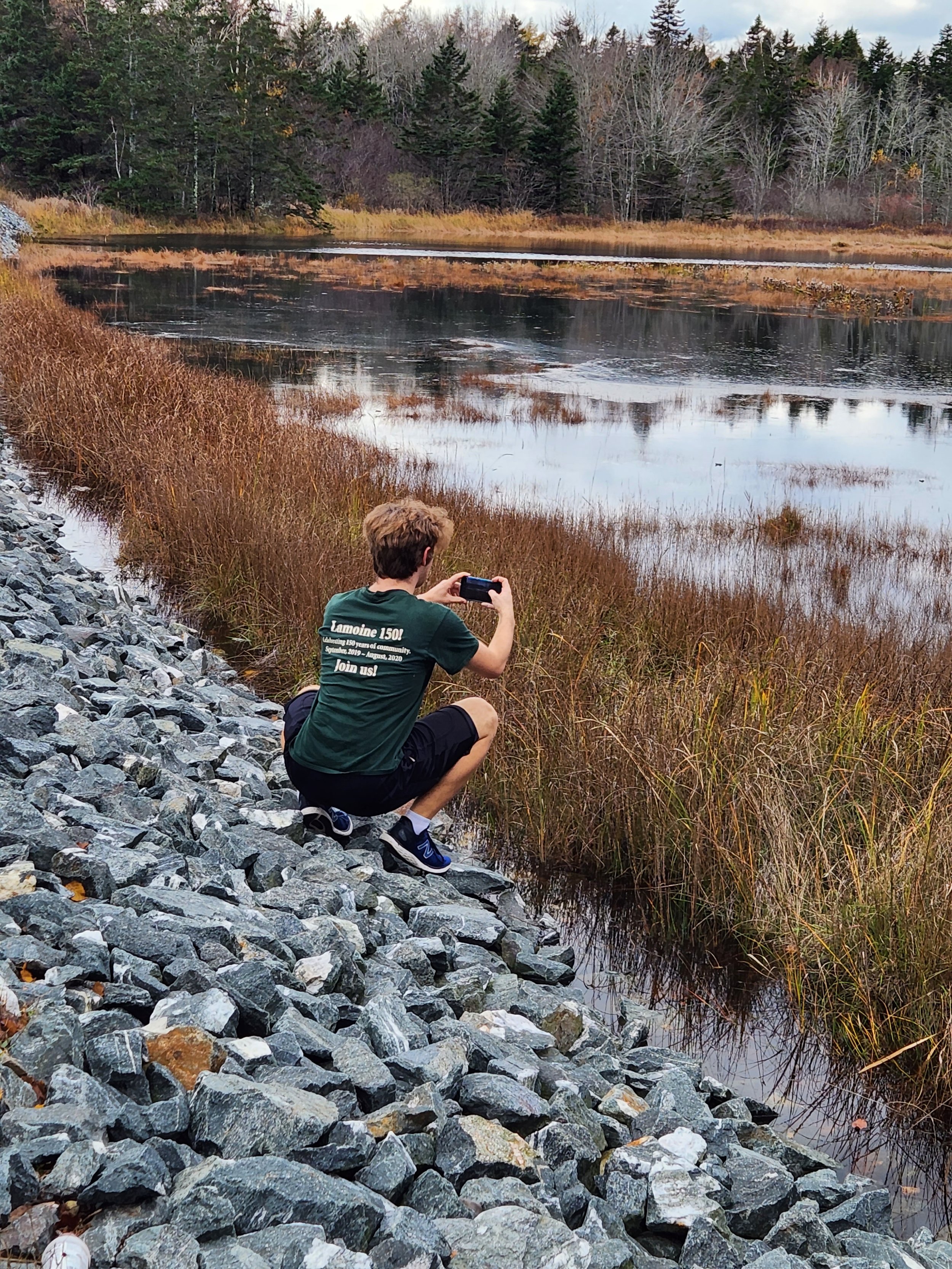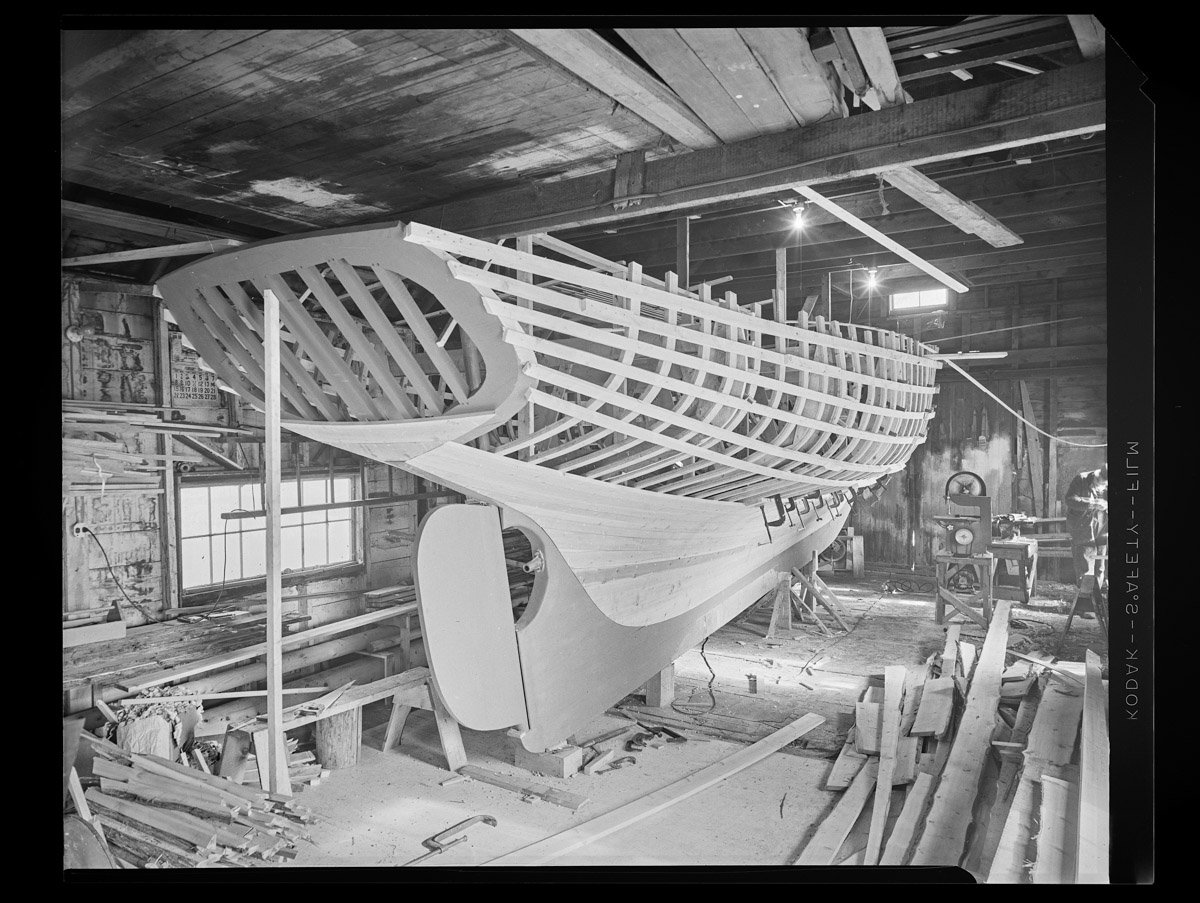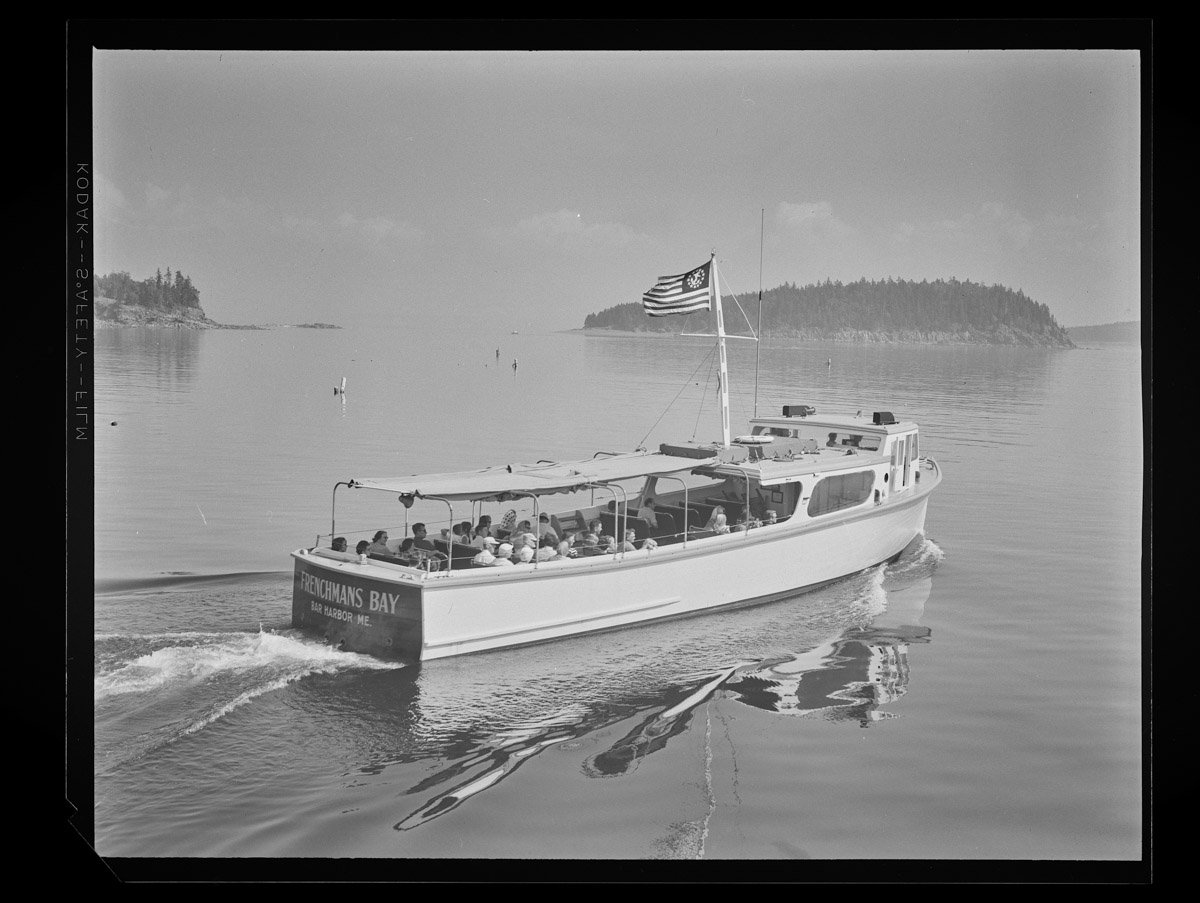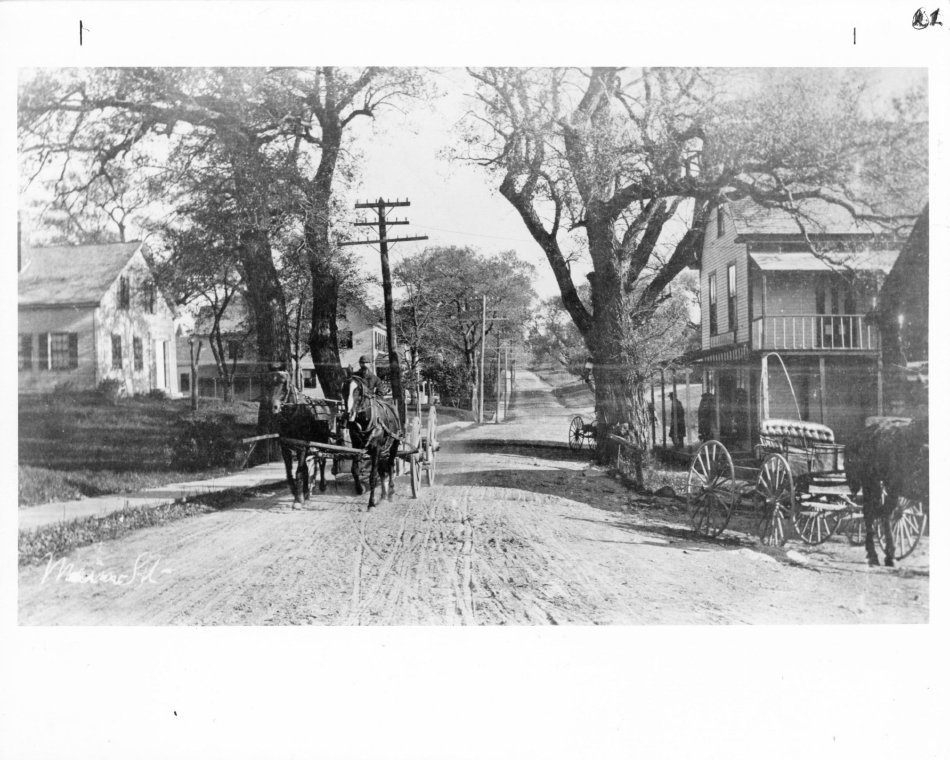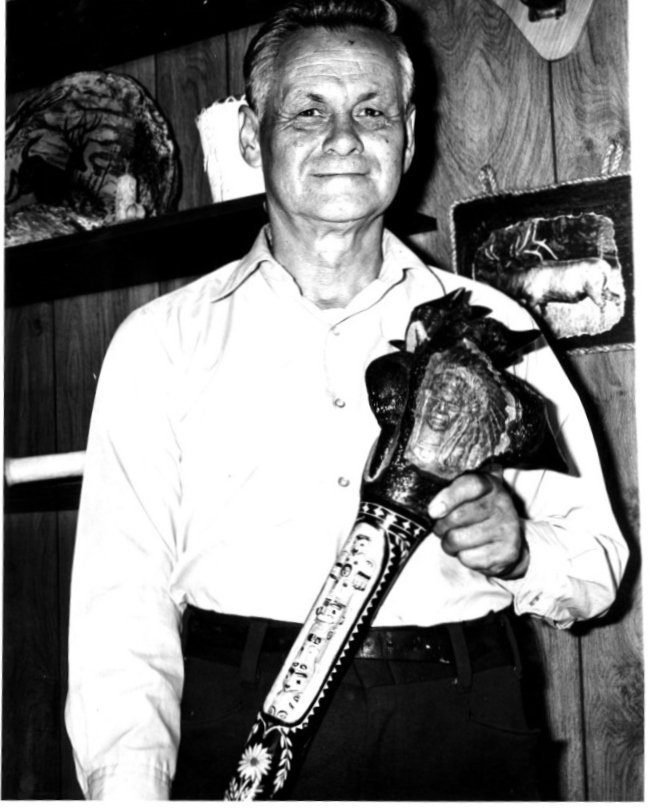Winter 2023
From the Executive Director, Raney Bench
I want to start by thanking so many of you for renewing your membership or joining for the first time. Our annual membership drive was a huge success. So far we have raised over $137,000 from 250 renewing members and 40 new members.
There are a number of reasons why your membership is so important to us. First, a robust group of members tells us that our programs, events, exhibits, and publications matter to you; and that our goal of making history relevant resonates with all avid islanders, from year-round and summer residents, to those who love MDI and wish they could spend more time here. Our members represent the demographics of our island communities, strengthening our ability to tell island-wide stories that foster deeper connections among towns, organizations, and individuals. Membership provides vital financial support for this work; approximately 80% of our annual operating budget comes from private donations. It is this collaborative relationship that makes the Society such a vibrant organization, one that cares deeply about your personal and family history, and for our shared past, present and future. If you are not a member yet, visit our website to learn more, and join today!
Sea Level Rise Project Update
In April 1851, the bridge connecting MDI to the mainland was damaged by “the wind and the sea” in a storm, requiring extensive repairs. The current Trenton Bridge rises higher over the water, making it relatively safe from storm damage, but anyone driving between Thompson Island and MDI at high tide knows how vulnerable we are to sea level rise. While much of the island is relatively protected given the depth of our surrounding water and steep shoreline, low-lying areas, marshes, and critical infrastructure are at risk to rising seas. King tides are an important tool for understanding how sea level rise will impact the coast. A king tide happens about four or five times a year and brings a higher than usual high tide, indicating locations that are vulnerable.
Last fall, during king tide season, the Society received a grant from the Lepage Center for History in the Public Interest at Villanova University to work with MDI high school students, scientists, and artists to study changes in sea level. Over several class sessions Science Communication Specialist, Catherine Schmitt, artist Jenn Booher, and Raney Bench shared resources and maps with students, detailing how sea level rise is measured and predicted, and ideas for creatively sharing this information with the public.
The group took a field trip to various places on the island during a king tide event to witness first hand what higher sea levels look like. It is predicted that, in the next thirty years, today’s king tides will be the height of an average high tide, meaning future king tides will push inland even further. We also visited the new Oceanarium to see a “ghost forest” dying from saltwater intrusion, and College of the Atlantic to learn more about how to communicate sea level rise to the public through art and exhibits. The students are now in the design phase of the project, building a prototype and budget for their end product. Stay tuned for more!
Baked Bean Supper virtual with Steve Bromage
The Society will host our traditional Bean Supper on January 30 from 6:00 to 7:30pm via Zoom. The evening will begin with a preview of History Happy Hour, an experiential, fun way to learn local history, held at island bars and restaurants every other month. Brush up on your maritime history, as the questions will be a sneak peek at our 2023 edition of Chebacco, due out in May.
This year’s Supper speaker will be Steve Bromage, Executive Director of the Maine Historical Society, who will present a conversation framed around “History: the Foundation of Maine’s Sense of Place.” In 2022, MHS celebrated its 200th birthday. Formed just two years after Maine became a state, MHS has been collecting, promoting research and scholarship, and helping share Maine’s story ever since.
Steve will discuss MHS’s preparations for its third century of service to Maine, and celebrate the spirit of collaboration between MHS, MDI Historical Society, and the MDI historical community.
The Bean Supper is free and participants must pre-register here.
Book Club - Marguerite Yourcenar
The next Book Club meeting is on February 13 at 6pm on Zoom, and the featured book is Memoirs of Hadrian by Marguerite Yourcenar. This program is free and open to the public, but registration is required.
Carl Little will join the group as special guest speaker. In 2018, Little wrote about Yourcenar and her Northeast Harbor home, Petite Plaisance, in Chebacco, the Historical Society’s annual history journal.
A novelist, essayist, and short story writer, Marguerite Yourcenar (1903-1987), born in Belgium, was raised in France, and moved to the US shortly before World War II. She and her partner Grace Frick eventually bought a house in Northeast Harbor and lived there for many decades. In 1981, Yourcenar became the first woman to be elected to the Académie Française since their inception in 1635.
In Chebacco, Little wrote, “First published in 1951, [Memoirs of Hadrian] takes the form of an extended letter written by the dying Roman Emperor Hadrian to his adopted grandson, Marcus Aurelius…The book demonstrates Yourcenar’s special genius for reviving the past.”
Little continues, “Petite Plaisance would prove to be the perfect place for writing; Yourcenar completed two of her most acclaimed books, Memoirs of Hadrian and The Abyss, while in residence, and many of her other works were composed and/or edited there.”
Memoirs of Hadrian was translated from French to English by Grace Frick. Copies are available to borrow from MDI libraries, and can also be purchased via local or online booksellers.
Finishing the novel isn’t required to attend meetings; we welcome readers whether they’re on page 12, 200, have finished the book, or haven’t had a chance to start it.
Visit www.mdihistory.org/book-club to see more info. To receive updates about Book Club, please email Jenna at jenna.jandreau@mdihistory.org to be added to the mailing list.
From the Collections - by Patrick Callaway, Collections Coordinator
One of my least favorite holiday traditions growing up was watching the Christmas episode of Little House on the Prairie. While the images on the screen were all about gathering together and the gratefulness of the Ingalls children for receiving gifts as simple as an orange, I had other plans. There was snow on the ground and I was sure there was some sort of creative mayhem to be involved in. To abbreviate a short story, I lost the family mayhem v. Little House vote.
The orange is the interesting character in this story. In the present, an orange is an unremarkable if somewhat odd gift, but in the context of the 19th century, the meaning is quite different. Items that are common to us would have been expensive luxuries, if not entirely inaccessible, for most people. One of the most interesting ways of tracing the material conditions of the mid-19th century can be found in store ledgers.
Tracing holiday season purchases recorded in Isaac Somes’s store ledger from New Year’s 1850 speaks to the types of things that people purchased. Axes and ax handles were a popular purchase that year, along with clothes, calico cloth, and candles. Food products including pork, beans, flower [sic], and corn completed the 1850 shopping list. Taken together, this suggests an economy focused on subsistence production, essential consumption, and little luxury even if it was “just” an orange. The purchases hint at a seasonal rather than a holiday theme- the bulk of purchases relate directly to the need for warmth, food, and light in the long Maine winter.
Call to Authors for Chebacco 2024: Island Influences
You are invited to submit an article proposal for the 2024 edition of our award-winning journal Chebacco. “Island Influences” will explore how MDI has been changed by people coming to the island with ideas from “away,” and how people have drawn inspiration and ideas from the island that influenced them when they left MDI.
Mount Desert Island has a long history of attracting interesting and influential people, as well as stimulating creative, artistic, and scientific thinking that extends beyond MDI, regionally, nationally and internationally. Sometimes the island benefited from visitors, summer and year-round residents, other times people left MDI with new ideas or work that would impact other place.This edition of Chebacco will explore how MDI has been changed, and how it has influenced change, and why this small place has long been an epicenter for such broad and far reaching appeal.
We seek articles of approximately 3,000 words in length that are written in a historically rigorous yet accessible style. For specific guidelines, please read our Chebacco Author Guidelines.
Initial deadlines for first drafts range from September to November 2023 with time for editing and revisions as needed prior to copyediting in December 2023. Some authors are currently working on articles about LaRue Spiker, Ruth Moore, Mary Wheelwright, MDI’s culinary history, and the Bar Harbor horse show. Potential topics could include, but are not limited to: science and conservation; rest and retreat / rusticators and tourism; College of the Atlantic; cultural influences brought by quarry workers or seasonal staff; gardens; or the Iran hostage crises (using a new collection at MDIHS from a summer resident who was held hostage).
If you would like to author an article, we would love to hear from you! Please send 100 to 250 words describing your proposed article to Raney Bench at raney@mdihistory.org.
History Happy Hour returns!
Gather over good eats, good times and learn local history in a fun and relaxed setting, playing Jeopardy-style trivia based on previous issues of Chebacco. Stay tuned for details on the date, time, and place where we’ll be getting together in March.
History Happy Hour is an experiential, fun way to learn local history through trivia, tours, games, and other active experiences. This members-only event occurs March, June, August, and October at island restaurants and bars.
Get your hands on older editions of Chebacco (most available for free as PDFs here), and start boning up on local history!
Chebacco Chats
The second half of Chebacco Chats Season Three wrapped up in December, with over 150 viewers joining us live on Zoom for seven fascinating episodes featuring Bill Horner on MDI’s Gilded Age of Yachting, Natalie Springuel on the history of net-pen salmon farming, Tim Garrity on the Stone Barn Farm, and more. Recordings have subsequently been watched over 400 times. Our most popular episode in 2022 was Raney Bench’s Chebacco Chat about the closing of the Quietside canneries.
Season Four kicks off on Thursday, March 2, with a chat about Thomas Jefferson’s unpopular embargo in Frenchman’s Bay from 1807-1809, featuring Josh Smith, Director of the American Merchant Marine Museum in Kings Point, New York.
Landscape of Change in Belfast
During the first program of the Belfast Garden Club Evening Lecture Series on Tuesday, January 24, at 6:30pm on Zoom, Catherine Schmitt of Schoodic Institute will present on the Landscape of Change project and how the Champlain Society logbooks are used to establish a baseline of data. Co-sponsored by the All of Belfast Climate Dialogues, a project of the Belfast Free Library, the lecture series will focus on the effects of climate change on local environments. Find the link to register at: https://belfastlibrary.org/abcd-events/
She’ll speak on what’s been learned about MDI’s changing landscape so far, the value of collaboration for monitoring the climate crisis, and the ways everyone can participate in understanding landscapes of change.
Follow Us
Follow us on Facebook and Instagram, and subscribe to our YouTube channel. We share all kinds of content, including images from our collection, some examples included here.
W.H. Ballard negative, 1962. Planed Hull of Friendship Sloop, Hieronymous, built by Ralph Stanley.
W.H. Ballard negative, 1962. Deep sea fishing boat from Frenchman Bay Boating Company in Bar Harbor.
c. 1870 photograph, looking north on Main Street, Somesville, Maine.
LaRue Spiker photograph, date unknown. Philip Lolar (b. 1898), member of the Penobscot Indians Governor’s Council, holds a ceremonial club made by Senabeh.
